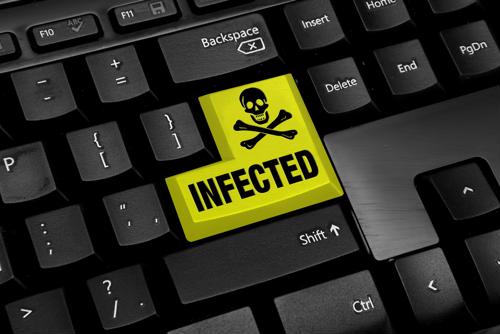When it comes to worst-case scenarios, do you have a "not me" mentality? If you see a devastating fire or crippling cyberattack in the evening news, do you tend to think that these events are the exception rather than the rule?
In some ways they are, but as the internet grows larger by the day, so do the threats that exist, as scammers are constantly refining their strategies to steal company data as well as that of their customers.
One of the more prevalent attacks is ransomware. Because an increasing number of individuals, organizations and even communities' computer systems have been infested by ransomware, it's more well known today than it was even five years ago. But if you're still unsure of what the virus is all about, grab a pen. You may want to take notes.
What is ransomware?
A form of malware, ransomware is a method scammers use to trick those they prey upon into clicking on seemingly harmless links, which may be sent via emails that look legitimate, as if they were from a well-respected organization. These URLs are nothing of the sort, as clicking on them causes computer systems to go on lockdown. The only way to retain control of the infected computer or network is by paying the sum demanded by the scammer, hence the "ransom" distinction. Instructions are typically detailed on the monitor once the system lockdown gets underway.
"Ransomware attacks are happening more often."
These attacks have caused a tremendous amount of headaches and monetary losses for municipalities, everyday consumers, major corporations as well as small-business owners all around the country, often in places that you'd least expect. What's more, they're occurring with greater frequency. Last year, ransomware attacks globally topped 204 million, based on figures collected by Statistica. These threats cost businesses tens of billions of dollars annually in productivity losses, in part because the ransoms are often paid. Security experts note that because ransomware attacks are designed to get those victimized to pay, the sum they charge is usually a reasonable amount, meaning they have the means to pay it. And because data is so sensitive, this may explain why more than half (55%) small-and-medium-sized businesses say they'd be willing to pay the amount in order to recover what was stolen, according to polling conducted by Small Business Trends.
That's the just the thing, though – even if you pay, there's no guarantee the attacker will actually cede back control of your computer or network. You don't need to be scared of ransomware. While no one is invulnerable, these strategies can lower your risk, as recommended by the Department of Homeland Security:
- Configure firewalls to block access to malicious IP addresses.
- Update all internet security programs frequently.
- Back up data regularly.
- Avoid visiting unfamiliar websites or opening unsolicited emails.
- Scan all emails with available software.
- Restrict access to networks and strengthen filter settings with email provider.
KETCHConsulting can provide you with the knowledge and strategies you need to recover from cybersecurity threats. We do this through our proprietary business impact analysis testing to determine where you're most vulnerable and offer solutions for how to plug those gaps. Contact us today to learn more.

